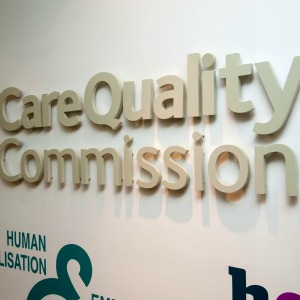When a doctor makes a mistake, they are expected to own up and say sorry.
If we were in any doubt, the GMC made it clear that ‘healthcare professionals must…apologise to the patient’ in its joint statement on the profession’s duty of candour.
And if the GMC’s ruling isn’t good enough for you, the CQC has published a 42-page document – piously entitled Complaints Matter – in which it states that it ‘expects responses to be empathetic and to provide a full explanation and apology where appropriate.’
The CQC is now the regulator of our complaints handling. It will judge us, rate us and demand change if it is unsatisfied. It has set the bar by which our apologies are to be measured. We must look to it for leadership, but we might have hoped it would lead by example.
And before Christmas, the CQC had an ideal opportunity to show us how to handle complaints, since the almighty mess it made of its intelligence monitoring data led to scores of practices being wrongly rated and their reputations being damaged in the media.
We were told it would issue an apology, with none other than the CQC’s senior national GP advisor and responsible Officer, Professor Nigel Sparrow, stating: ‘We will contact each of those practices to apologise for any concern this may have caused to GPs, staff and patients.’
But the apology was limisted to the sixty practises mistakenly placed in bands 1 or 2, who were told they would be moved to a lower priority for inspection. It did not cover the hundreds of practices who were mistakenly placed in bands 3, 4, or 5 when they deserved a better rating.
True to its word, it has indeed written to practices, and here is its reply to one of the practices that was wrongly banded as a 4 instead of a 6, leading to it being named and shamed in its local press:
‘Thank you for your recent e-mail on the GP Intelligent Monitoring publication, with particular reference to GPPS005, “The proportion of respondents to the GP patient survey who stated that the last time they wanted to see or speak to a GP or nurse from their GP surgery they were able to get an appointment”.
Following a review of your comments and the comments of others we have considered the methodology and the individual survey response data and have removed this indicator. A refreshed version of the GP Intelligent Monitoring reports are now available on our website. We continue to review all the feedback that we have received and it is important to highlight that this is the first release of Intelligent Monitoring for GP practices and we will continue to develop the approach.’
Surely any practice that is wrongly rated by the CQC deserves an apology, regardless of the magnitude of error.
If not, we need to redefine the meaning of the verb ‘apologise’, since it now appears to be perfectly possible to do this selectively, apologising only for the mistakes that hurt your reputation and not for those that hurt others’. How foolish of me to think otherwise.
Dr Martin Brunet is a GP in Guildford and programme director of the Guildford GPVTS. You can tweet him @DocMartin68.
Pulse October survey
Take our July 2025 survey to potentially win £1.000 worth of tokens












